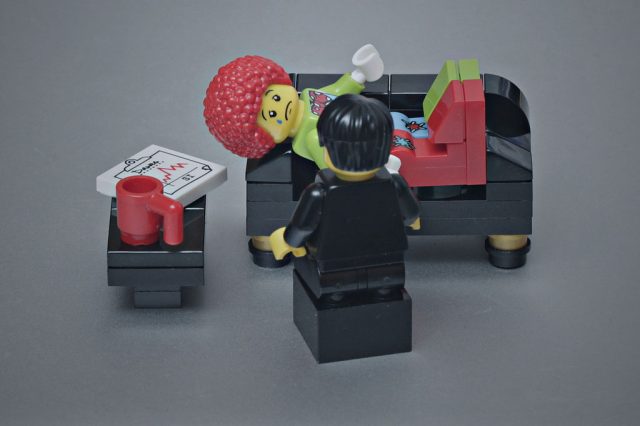
An online platform that helps people with bipolar disorder self-administer therapy has proven to be successful in a small trial, with 92 percent of participants saying they found the content positive.
Nicholas Todd, a psychologist in clinical training at the NHS Trust, has developed the site as part of a project he's running called Living with Bipolar.
In it, he asked 122 people to use a sort of e-learning environment that uses audiovisual models and worksheets, incorporating parts of cognitive behavioral therapy and psycho-education known to be effective in bipolar patients. There's also a peer support forum, which is moderated by a member of Todd's research team, and motivational e-mails were periodically sent to those on the trial.
"Service users were encouraged to access the intervention flexibly and use it as and when they felt appropriate," Todd told Wired.co.uk. That's because, as he presents in a paper on the platform, for patients "recovery is defined as people living a fulfilling life alongside their condition." As such, it needs to fit in around them, their lifestyle, and their changing needs.
One participant comments: "...for me recovery is certainly not about being symptom free… it is about coping and having a reasonable quality of life, being able to work productively, and enjoying things outside of work."
Thus, Todd explains, "service users did not focus on a 'cure' as their desired outcome but instead personally defined recovery goals and improved quality of life."
By the trial end, Todd found that, on average, users who stayed till the end completed 60 percent of the program. Of the people that completed the whole thing—15 modules—74 percent took under three months to do so.
The platform took a year to develop, largely spent looking at the most effective components of psychological therapy for bipolar disorder. As this was narrowed down, the group carried out five focus groups and tested it online via a consultancy group.
The system gets users to identify their own mood using an established scale, the idea being they—and the system—can track their own ups and downs. "Service users would then receive information about the most appropriate modules, given their mood symptoms," says Todd.
The forum, he says, played a key role in the project's success. One participant commented, "..part of it [bipolar disorder] is feeling very alone... you don't get that and I do think that the forum works extremely well with the intervention..." Todd explains how participants used it to support each other not only through the new intervention process, but through life events.
"A balance was struck between allowing participants to offload and posts which encourage or talk about acts of suicide, self-harm, harm to others, and are unhelpful to participants' recovery." A total of 70 percent of the users signed up to the forum, and 1,927 posts on 130 topics were accumulated. "The participants who used the forum tended to complete more modules, and all participants who completed the entire program used the forum, albeit in different ways."
The idea behind the platform is to help bridge those periods between appointments, or those appointments that a patient misses. As with depression, health services can be known to administer solely medication to help alleviate symptoms. More and more, the NHS is striving to ensure psychological therapy is integrated alongside a prescription for mood stabilizers, such as lithium. "However, severe inequalities in access to psychological interventions for bipolar disorder currently exist in the NHS," Todd says. "This intervention aims to increase access to psychological intervention."
Todd tells us the NHS is actively training more staff to deliver psychological therapy to plug the gap. For now, that initiative is being piloted for severe mental health conditions. "This intervention may fit as part of this initiative in giving service users with bipolar disorder greater access to psychological therapy.
"Computerized interventions are not about replacing face-to-face interventions, but giving someone another option to receive psychological support. In fact, some people prefer accessing psychological support in this way as it fits better with their lives."
For one woman in particular the experience has been, in her words, "life changing."
She said: "I have encountered insights in the modules that have significantly helped me to survive the blackest moments. I cannot measure the value of this, as it has contributed to their difference between life and death. My husband and I are sincerely grateful for the immeasurable impact this has had on our family."
This story originally appeared on Wired UK.
reader comments
24